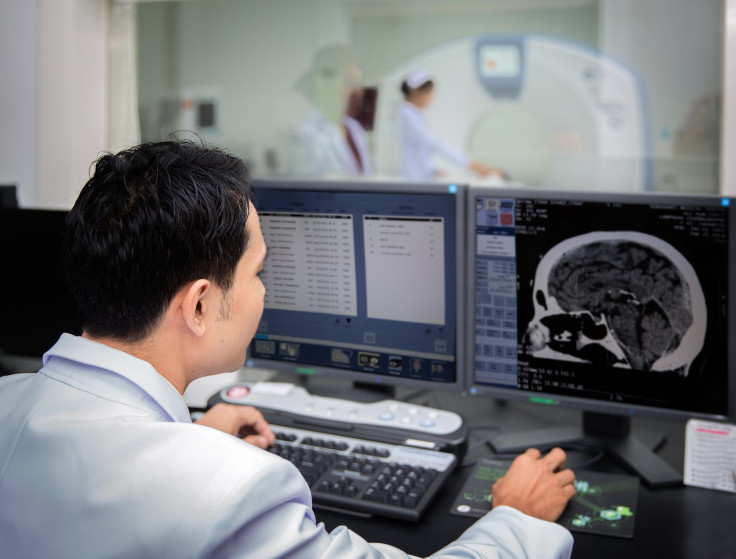New Symptom Of Atherosclerosis? Artery Hardening Linked To Mild Cognitive Impairment

Atherosclerosis is commonly known as “hardening of the arteries.” Essentially, fat, cholesterol, and other substances collect in the blood vessels, where they form plaque and contribute to restricted flow. "It is well established that plaque buildup in the arteries is a predictor of heart disease," said Dr. Christopher D. Maroules, a radiology resident at UT Southwestern Medical Center. "Our findings suggest that atherosclerosis not only affects the heart but also brain health." In a new University of Texas study, Maroules and his co-researchers discovered that a buildup of plaque in the body’s major arteries is linked to mild cognitive impairment — or greater than the normal age-related declines in memory and brain function.
To understand how atherosclerosis might affect the brain, researchers analyzed the test results of 1,903 participants in the Dallas Heart Study, which includes men and women, at an average age of 44, from various ethnic backgrounds who live in Dallas County. All the participants had no symptoms of cardiovascular disease at the beginning of the study. After completing the Montreal Cognitive Assessment, a standardized test for detecting mild cognitive impairment, each participant underwent a brain scan in order to detect bright white spots known as high signal intensity areas.
"Increased white matter hyperintensity volume is part of the normal aging process," Maroules explained in a press statement. "But excessive WMH volume is a marker for cognitive impairment." In other words, the researchers tested the participants in two ways — with a brain scan and a questionnaire — to understand their level of mental abilities.
Next, the study participants underwent body scans to measure the buildup of plaque in three distinct areas of the body. Atherosclerosis can occur in any artery, including the carotid, which supplies blood to the brain, and the aorta, which carries oxygenated blood from the heart through the abdomen to the rest of body. Specifically, the researchers examined wall thickness in the carotid arteries and the abdominal aorta, in addition to the amount of calcified plaque in the arteries of the heart.
After analyzing the data, the researchers found relationships between atherosclerosis in all three vascular areas of the body and the cognitive health of the participants. While mild impairment can lead to dementia or Alzheimer's disease, it does not in all cases and may never progress. The results of this study will be presented at the annual meeting of the Radiological Society of North America (RSNA).
"Plaque buildup in blood vessels throughout the body offers us a window into brain health,” said Maroules. "These results underscore the importance of identifying atherosclerosis in its early stages, not just to help preserve heart function, but also to preserve cognition and brain health.” From the laymen's point of view, then, Maroules and his co-researchers discovered a previously unknown (and unfelt) symptom of atherosclerosis.



























